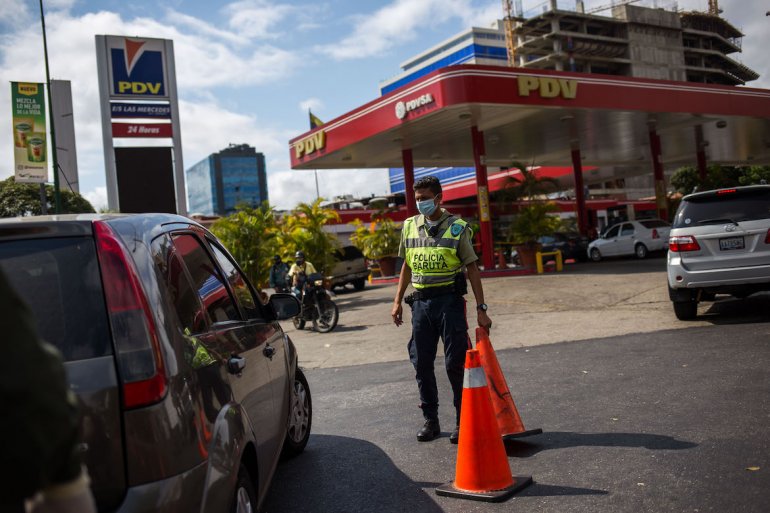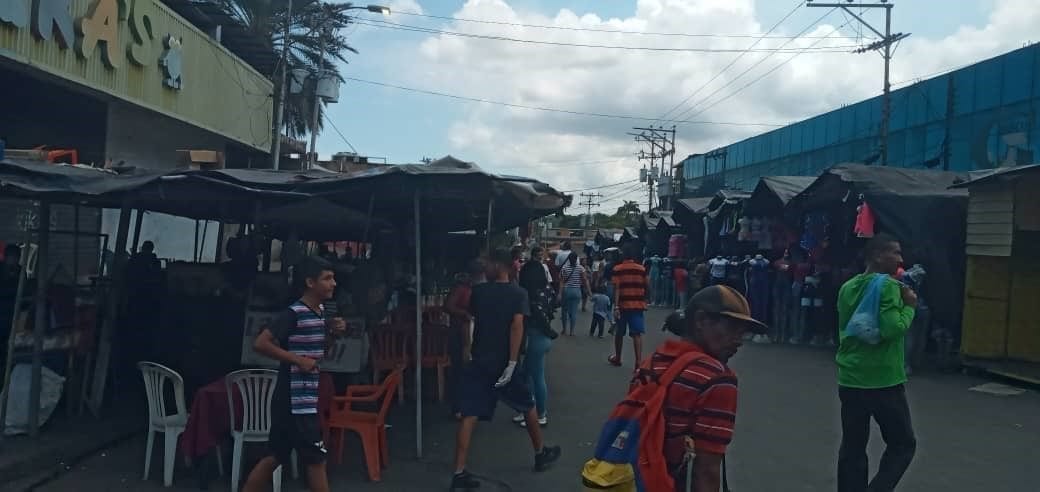My name is Leonela Quintero, I am from Maracaibo. I am a graduate of Mass Communication at the University of Zulia, and later I specialized in Filmmaking.
Since I was little my inclination for the arts was notorious. My mom allowed me to experiment with the arts, from painting to dance. However, in my teens, I felt inclined towards music and began to study guitar, piano, percussion, and singing.
I was not the typical Mass communication student, I did not want to be a model or the host of a T.V show. But when I was a student, Maracaibo was very rich in cultural activities, and I began to experiment photographing the city’s architecture, murals, graffitis, etc. I began to walk around my city and to discover spaces, to learn the history behind its buildings, and of the artists who used the walls of the city as a canvas.
I am very interested in everyday life, in documentary photography. Many people live next to a church that they have never paid attention to, but perhaps a photograph changes your perspective of that place. My goal in life has always been to see the bright colors in it through my lens. I love sunsets, backlight, contrast.

My musical side.
All my friends thought I was going to major in music, but I didn’t. However, I never left music aside, and in 2007 I joined the university’s choir and stayed there for 5 years. During this stage, I learned a lot from great professors, and my artistic soul was greatly nourished; Our repertoire went from boleros to Beethoven’s ninth symphony.
My favorite instrument is the guitar, and thanks to it, I started to compose my own songs. Music implies a slightly more uphill path than visual arts, but it has still brought me a lot of satisfaction.
In 2018 I emigrated to Medellín, a beautiful city that allowed me to work as an audiovisual artist with great musicians such as Jorge Celedón, C4 trio, Yasmil Marrufo, and Cáceres. However, I was also able to participate in various competitions with some compositions, and I have shown my musical work to different musical groups.

Integrarte Foundation.
My beginnings with the foundation are not only based on the fact that my mother always instilled in me a love for the arts, but also because my father was a special education teacher. I always had a lot of access to people with disabilities.
After finishing university, I discovered a term called “accessible cinema”, which is nothing more than an initiative that was born in Europe based on cinema adapted to people with disabilities. That’s where my ideas began to generate initiatives of this type in Venezuela.
A month after graduating from university, I began to study education and to work with the National Center for Cinematography (CENAC). This center saw in me a person very dedicated to art, and to children with disabilities, so they helped me a lot with regard to training on initiatives of this type that in other countries were much more advanced.
In 2014 I managed to consolidate my first workshop with children with Down syndrome, and it was here that I realized that I preferred working with children. The experiences lived in this workshop resulted in a short film that competed in the Margarita Latin American and Caribbean Film Festival and won 3rd place. Thanks to this opportunity, I began to surround myself with people who were part of the Venezuelan cinema movement, and I realized that there was a giant universe in which I also had a place.
The first step was to create a legal entity to provide formality to my idea, and that is when Integrarte Foundation was born, with the mission of saving lives and improving realities. Our vision is that art is the basis of every human being, and that, regardless of beliefs, languages , or religions, art always connects us.
After this, I obtained financing from various institutions and companies in the country, and that is how I began a 4-year tour throughout all the states of Venezuela taking these workshops to every corner of the country, not only for children with disabilities but also for people belonging to indigenous ethnic groups and even people deprived of liberty. I began to live doing what I liked, draining my artistic needs, and also doing something good for my country.

The arts in Venezuela.
The arts are born from a process of rebellion, of revolution, out of a need to express something. Art is a basic human need.
All governments of the world, not only that of Venezuela, should provide more resources that allow artists to spread what they know to people. In 2014 I had the opportunity to work hand in hand with Cines Unidos and some city halls in an activity that consisted of taking children to the movies for free. While carrying out this activity, I realized that many children had never been to the movies, and this seemed very sad to me but at the same time it was something wonderful because it was an opportunity that we were giving them.
I believe that all artists have a responsibility, with or without government support, to spread the gifts and talents that the universe has given us as a seed that grows within us. I believe that this is the right time to continue supporting artists who have saved us during the pandemic in times of total lockdown; many took to the balconies of their cities, many began teaching free, many helped lift our spirits, etc. Today, artists have gained more strength, with or without support, because since 2020 art became a necessity for everyone.
Final reflection.
I have fulfilled many of the objectives that I have set for myself, but I don’t want to live on expectations and tell you where I am going to be in the coming years, I particularly prefer to flow. Since I was a little girl, I do the things that I love with the best attitude, with a lot of discipline and always trying to leave a reflection.
In the foundation, we have always done workshops, and every 3 months the results of those workshops were projected in the cinema. All the parents of the children were present, and it was very gratifying to see how children were moved by the fact that they could watch what they had worked so hard for on that same big screen where they watched the movies of their favorite superheroes. Giving power to people who have never had opportunities allows us to grow as a society, and this is my life’s premise.
At this time in human history, art has allowed us to broaden our perspectives, and open our hearts, making us better people and agents of change. For me, a day without art is a day wasted.

Text and translation: Pascual Díaz




